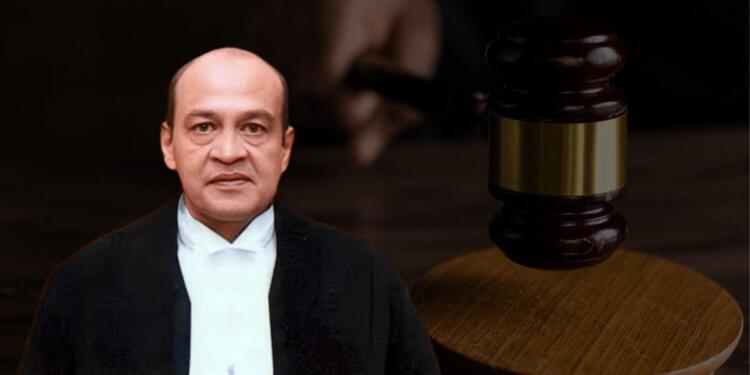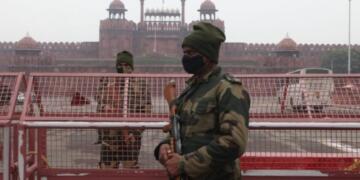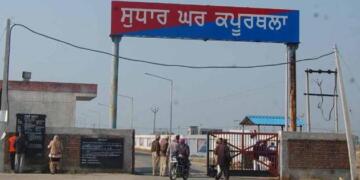In a significant development, the Narendra Modi government is learnt to be preparing to bring an impeachment motion against Justice Yashwant Varma of the Delhi High Court during the upcoming Monsoon Session of Parliament.
Top sources stated that the move comes after Justice Varma refused to resign from his position despite mounting pressure and the findings of a Supreme Court-appointed panel that investigated large sums of unaccounted cash allegedly discovered at his residence.
Sources indicate that the Chief Justice of India had written to both the President and the Prime Minister, recommending that impeachment proceedings be initiated. The letter is believed to have been accompanied by a detailed report from the investigative panel, outlining serious concerns about Justice Varma’s conduct.
The government is expected to first introduce the impeachment motion in the Lok Sabha, and is reportedly confident of securing its passage in both houses of Parliament. Sources stated behind-the-scenes negotiations have already taken place, with the government reaching out to senior Opposition leaders to brief them about its intentions and seek their support. The Central government is understood to be attempting at political consensus building on the issue so as to present a united front against corrupt practices in higher judiciary.
Initial indications suggest that key Opposition parties are on board with the decision, signaling a rare moment of consensus in the legislature. “The credibility of the judiciary must be protected at all costs. If the facts in the report are as serious as suggested, then Parliament must act,” said a senior Opposition leader, speaking on condition of anonymity.
The Monsoon Session is scheduled to take place in July and is expected be closely watched, with the impeachment motion poised to be a politically and constitutionally significant event. If successful, this would mark a rare instance of a sitting judge being impeached by Parliament — a process that involves rigorous scrutiny and a high threshold for approval in both the Lok Sabha and Rajya Sabha.
Justice Yashwant Varma, a sitting judge of the Delhi High Court, has been at the center of controversy following allegations of a significant amount of unaccounted cash being discovered at his official residence. The incident reportedly occurred after a fire at his residence, leading to the alleged discovery of the cash. The exact amount of money found has not been officially confirmed
Justice Varma has strongly denied the allegations, describing them as a conspiracy to malign his reputation. He stated that neither he nor his family members had placed any money in the storeroom where the cash was allegedly found. Justice Varma also expressed concerns about the authenticity of the evidence presented, suggesting possible tampering. He further pointed to previous online allegations against him in December 2024, hinting at a possible effort to damage his reputation.
It must be pointed out that no judge has been successfully impeached and removed in Indian history to date. Judges often resign before the process concludes, avoiding formal impeachment. The process is designed to ensure judicial independence, hence requires very high thresholds.
Impeachment Process for Judges
A motion needs to be signed by 100 Lok Sabha MPs, or 50 Rajya Sabha MPs.
The motion is submitted to the Speaker (Lok Sabha) or Chairman (Rajya Sabha).
The Speaker/Chairman may either admit or reject the motion.
If admitted, a 3-member committee is formed, comprising a Supreme Court judge, a Chief Justice of a High Court, a distinguished jurist.
The committee investigates the charges. If the judge is found guilty, the motion proceeds to the House.
Parliamentary Approval:
Motion must be passed in both Houses by two-thirds of members present and voting and a majority of total membership of the House.
Once both Houses pass the motion, it is sent to the President, who orders the judge’s removal.
Instances and Attempts of Judicial Impeachment in India
Justice V. Ramaswami (1993) – Supreme Court Judge
Allegation: Financial irregularities during his tenure as Chief Justice of Punjab & Haryana HC.
Inquiry: Found guilty by the inquiry committee.
Lok Sabha vote: Failed. Congress abstained; motion didn’t reach the required majority.
Outcome: Not impeached, continued in office till retirement.
Justice Soumitra Sen (2011) – Calcutta High Court
Allegation: Misappropriation of public funds before elevation to HC bench.
Rajya Sabha: Passed impeachment motion with 189 votes in favour.
Before Lok Sabha vote: Justice Sen resigned, ending the process.
Outcome: Impeachment process dropped post-resignation.
Justice P. D. Dinakaran – Sikkim High Court
Allegation: Land grabbing, judicial misconduct.
Motion initiated in Rajya Sabha.
Before inquiry concluded: He resigned in 2011.
Outcome: Impeachment process ceased post-resignation.
Justice J.B. Pardiwala (2015) – Gujarat High Court
Motion initiated by 58 Rajya Sabha MPs.
Reason: Alleged anti-reservation remarks in a judgment.
Outcome: Motion withdrawn after judge expunged the remarks from the judgment.
Justice Dipak Misra (2018) – Chief Justice of India
Allegation: Misconduct and misuse of authority.
Motion: Submitted by 64 Rajya Sabha MPs.
Chairman (Vice President Venkaiah Naidu): Rejected the motion, citing lack of merit.
Outcome: No inquiry initiated.





























